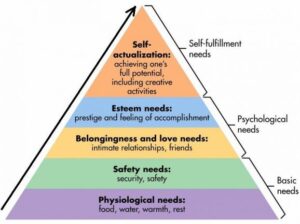The Acorn House is committed to raising the standards of SEMH in all of our pupils and developing transferable skills that give our pupils the confidence and ability to use strategies to support their learning in all areas of the curriculum. We are based in a separate building in Oak Bank Grounds. We use a model called TEACCH in our classrooms to help pupils with reaching their EHCP targets and providing a more structured way of teaching and learning.
Knowledge-Rich: Our curriculum supports SEMH pupils with additional Autism Spectrum Disorder (ASD) is tailored to meet their specific needs, including visual frameworks essential for comprehension. We focus on equipping students with skills that generalise across different settings.
Intelligently Planned: Students follow the school curriculum with necessary 1:1 support as they transition towards independence. Individual visual timetables and classroom schedules help students understand daily routines and develop strategies for autonomy. Collaboration with parents/carers and professionals ensures tailored support for each student.
Culturally Rich: We foster an inclusive environment where students respect diverse cultures and perspectives, promoting appreciation and understanding among peers.
Reading-Focused: Prioritising emotional well-being, students begin their day by identifying their emotional state. This helps us gauge their readiness for learning and provide appropriate support, including quieter areas for focused work.
Context-Specific: We modify the SEMH school environment to accommodate sensory sensitivities typical of students with ASD, ensuring they feel comfortable and supported in their learning environment.
Values-Driven: Building strong rapport with students allows us to recognize and address their anxieties promptly, fostering positive relationships and supporting their social, emotional, and relational development.
Underpinned by Rules: Our provision aims to nurture each student individually, enabling them to achieve their full potential academically and personally. We prepare students for future phases of learning and beyond, emphasising social, emotional, and relationship skills essential for lifelong success.
By focusing on these principles, we prepare students with SEMH & ASD to become confident, independent learners ready to navigate their future with resilience and success.
https://www.autism.org.uk/about/strategies/teacch.aspx
TEACCH values
Teaching – sharing autism knowledge and increasing the skill level of professionals and practitioners.
Expanding – increasing own knowledge to provide high-quality services to people on the autism spectrum and their families.
Appreciating – appreciating the strengths and uniqueness of autistic culture.
Collaborating and
Cooperating with colleagues, other professionals, people on the autism spectrum and their families.
Holistic – adopting a holistic approach, looking at the person, their family and community.
TEACCH priorities
Some of the TEACCH Autism Program priorities are:
- focusing on the person, their skills, interests and needs
- understanding the ‘culture of autism’ and identifying differences based on individualised assessments
- using visual structures to organise the environment and tasks when teaching skills
- being broad-based, ie support people at work, teach skills but also ensure that people are supported during leisure and/or social activities
- being flexible and teaching flexibility.
The TEACCH principles and techniques may always need to be in place for someone, but they may look very different at different stages of the person’s life.
The TEACCH approach tries to respond to the needs of autistic people using the best available approaches and methods known so far, for educating and teaching autonomy. It is not a single method and can be used alongside other approaches.
Our other approach that we use with our pupils is the SCERTS® Model.
The SCERTS® Model is a research-based educational approach and multidisciplinary framework that directly addresses the core challenges faced by children and persons with ASD and related disabilities, and their families. SCERTS® focuses on building competence in Social Communication, Emotional Regulation and Transactional Support as the highest priorities that must be addressed in any program, and is applicable for individuals with a wide range of abilities and ages across home, school and community settings. http://scerts.com/
“SC” – Social Communication – the development of spontaneous, functional communication, emotional expression and secure and trusting relationships with children and adults.
“ER” – Emotional Regulation – the development of the ability to maintain a well-regulated emotional state to cope with everyday stress, and to be most available for learning and interacting. “TS” – Transactional Support – the development and implementation of supports to help partners respond to the person’s needs and interests, modify the environment, and provide tools to enhance learning. Specific plans are developed to provide educational and emotional support to families, and to foster teamwork among professionals.
Each pupil is provided with their own visual timetable to guide them through their learning day.
Pupils in the Acorn house follow all of the curriculum and are given opportunities to attend classes outside the Acorn keeping them integrated with the rest of the school.
Our aim is to ensure that all learners achieve their full potential.
The picture illustrates a framework adapted from Maslow’s hierarchy of needs, which can be used to address all different human needs and characteristics, skills and areas for development of each unique young person.
